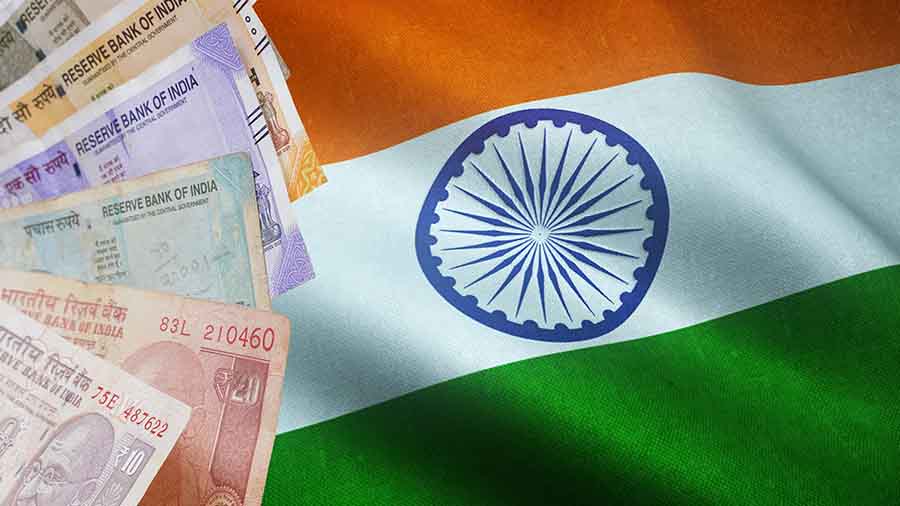In order to operate properly, businesses in India are required to understand the various government departments that regulate the country's business environment. This knowledge not only helps in ensuring compliance with legal requirements but also aids in leveraging governmental support for better business operations. This article outlines key ministries and departments and their roles, providing businesses with a navigational compass through the Indian bureaucratic landscape.
Ministry of Commerce and Industry
This is the parent ministry of several departments like DPIIT and DGFT, and it's responsible for the overall industrial policy, promotion of export and import, and trade regulations.
Department for Promotion of Industry and Internal Trade (DPIIT)
This department is typically tasked with promoting the industrial sector, focusing on increasing the potential for investments and improving domestic trade. It may work on easing regulatory burdens, attracting foreign direct investment (FDI), and encouraging innovation and modernization within industries.
Directorate General of Foreign Trade (DGFT)
This department usually handles the promotion and regulation of a country's exports and imports. Its responsibilities include creating trade policies, issuing licenses for trade, and implementing export promotion measures. It would also be involved in the formulation of guidelines related to the import and export of goods in line with international trade norms and agreements.
Directorate General of Trade Remedies (DGTR)
The Directorate General of Trade Remedies (DGTR) is an agency under the Ministry of Commerce and Industry. It investigates and combats unfair trade practices such as dumping and government subsidies that harm domestic industries. Dumping involves exporting goods below-market prices, threatening local businesses that can't compete. Countervailing duties counter these practices by offsetting subsidized imports, leveling the playing field for domestic companies.
Domestic industries may petition the DGTR for intervention when they face injury from such practices. The DGTR then conducts detailed inquiries to verify the claims and assess the damage to local industries. Upon confirming unfair practices, it may recommend anti-dumping or countervailing duties in line with World Trade Organization (WTO) regulations to ensure fair competition and safeguard domestic jobs and industries.
Ministry of Corporate Affairs
The Ministry oversees critical legislative frameworks governing the corporate sector, including the Companies Act of both 2013 and 1956, as well as the Limited Liability Partnership Act of 2008, setting the legal precedents for company operations. Additionally, it enforces the Competition Act of 2002, which aims to eliminate anti-competitive practices, maintain market competition, and protect consumer interests via an established commission.
Beyond legal regulation, the Ministry also manages the administration of various Acts related to partnerships and societal registrations and supervises the professional growth and regulatory compliance of three major accounting and secretarial institutions:
- the Institute of Chartered Accountants of India (ICAI);
- the Institute of Company Secretaries of India (ICSI); and
- the Institute of Cost Accountants of India.
These government bodies are fundamental to the structured development of their respective professions, operating under separate Acts of Parliament.
Ministry of Labor and Employment
The Ministry of Labor and Employment in India oversees labor laws and ensures that employment practices are fair, safe, and beneficial to employees and employers.
The Ministry's roles and responsibilities are paramount in shaping the labor market, influencing business operations, and contributing to economic growth while protecting the rights and welfare of workers. It is a key player in creating a balanced, fair, and productive business environment.
Ministry of Finance
The Ministry of Finance is a government body in India responsible for the administration and oversight of the country's fiscal and economic policies. This ministry has a broad mandate, which includes Taxation, Financial Legislation, overseeing Financial Institutions, Capital Markets Regulation, Public Finance Management, and Fiscal policy formulation.
Goods and Services Tax Council (GST Council)
The Goods and Services Tax Council (GST Council) is responsible for policy formulation; it advises on GST rates, exemptions, and thresholds. The Council ensures the uniform implementation of GST, which simplifies the tax structure by replacing various indirect taxes. Its decisions significantly influence business economics regarding pricing, compliance, and profitability across India.
Reserve Bank of India (RBI)
The Reserve Bank of India (RBI) acts as India's central bank, playing a key role in regulating the banking sector, formulating monetary policy, and ensuring financial stability. It manages the country's money supply to maintain price stability and foster economic growth, oversees and ensures the safety of banks and financial institutions, and facilitates all economic transactions by issuing currency and serving as the government's banker. Additionally, the RBI's policies directly impact the availability and cost of credit, influencing business financing and economic expansion.
Directorate General of Supplies and Disposals (DGS&D)
The DGS&D functions as the principal procurement agency of the Indian government. Its role is to facilitate the procurement of goods and services for various ministries and governmental departments transparently and cost-effectively.
If businesses are interested in securing government contracts, they need to engage with the DGS&D. This involves participating in the tender process, which includes the submission of bids in accordance with the DGS&D's stipulations. Given the scale and consistency of government procurement, success in these tenders can lead to significant opportunities. To be eligible, businesses must demonstrate their ability to fulfill contracts efficiently and to the specified quality standards.
Directorate General of Commercial Intelligence and Statistics (DGCI&S)
The DGCI&S serves as a repository of trade statistics and commercial information in India. It is a crucial resource for businesses conducting market research and analysis, as it provides data on import and export volumes, market trends, and other relevant commercial insights.
This information can benefit businesses looking to expand operations, enter new markets, or understand the competitive landscape. By leveraging the data from DGCI&S, companies can make informed decisions backed by reliable statistics.
Atal Incubation Centre (AIC)
The Atal Incubation Centre initiative aims to foster innovation and entrepreneurship in India. AICs are established to provide necessary support to startups, including access to funding, guidance in business development, and assistance with operational costs. For innovative startups and entrepreneurs, AICs offer a nurturing ecosystem that encourages the development of new ideas and their transformation into viable business ventures.
The government-backed support provided by AICs can be instrumental in overcoming the challenges often faced by early-stage startups, such as securing investment and navigating the market landscape.
New Generation Innovation and Entrepreneurship Development Centre (NewGen IEDC)
The NewGen IEDC is designed to cultivate entrepreneurial skills among young individuals and assist them in developing technology-driven enterprises. The program focuses on providing mentorship, resources, and support to turn innovative ideas into successful business models. It is a key initiative for startups and entrepreneurs who seek not just financial support but also guidance in refining their business concepts, strategies for growth, and market penetration.
By participating in NewGen IEDC programs, entrepreneurs can gain access to expert advisors, technical resources, and networking opportunities that are crucial for scaling a technology-focused business.









